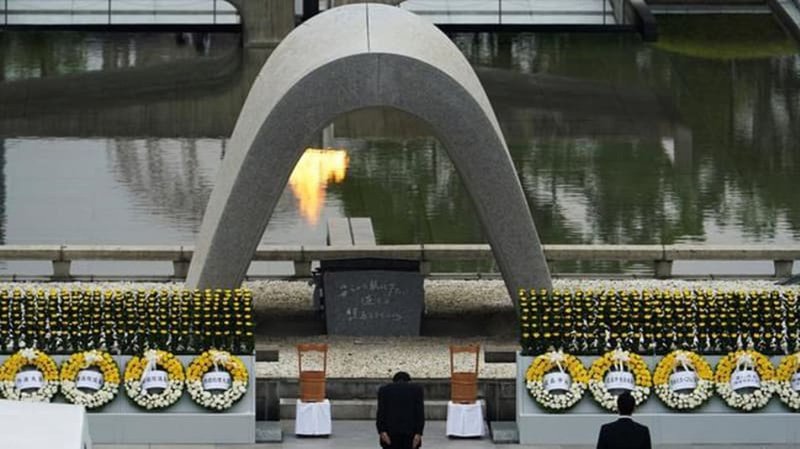
Survivors mark 75th anniversary of world’s 1st nuclear attack
HIROSHIMA, Japan — The dwindling witnesses to the world’s first atomic bombing marked its 75th anniversary Thursday, with the mayor and others noting the Japanese government’s refusal to sign a nuclear weapons ban treaty, highlighting its hypocrisy.
Hiroshima Mayor Kazumi Matsui urged world leaders to more seriously commit to nuclear disarmament, pointing out Japan’s failures.
“I ask the Japanese government to heed the appeal of the (bombing survivors) to sign, ratify and become a party to the Treaty on the Prohibition of Nuclear Weapons,” Matsui said. “As the only nation to suffer a nuclear attack, Japan must persuade the global public to unite with the spirit of Hiroshima.”
His speech highlights what survivors feel is the hypocrisy of Japan’s government, which hosts 50,000 American troops and is protected by the U.S. nuclear umbrella. Tokyo has not signed the nuclear weapons ban treaty adopted in 2017, despite its non-nuclear pledge, a failure to act that atomic bombing survivors and pacifist groups call insincere.
